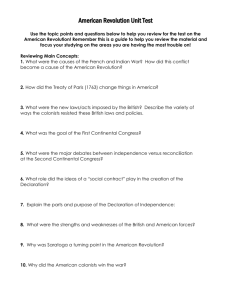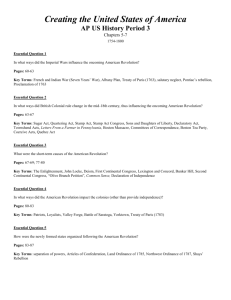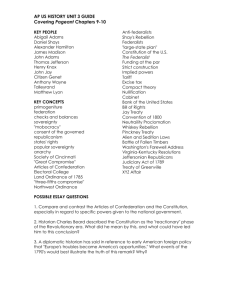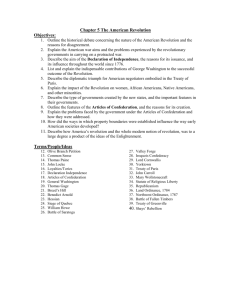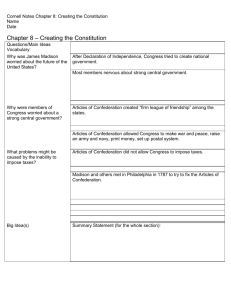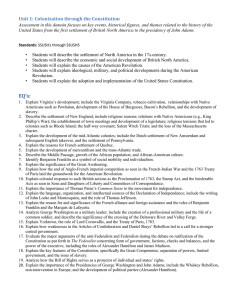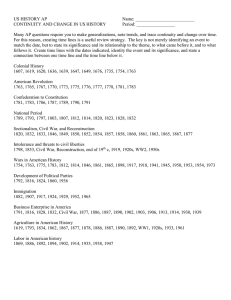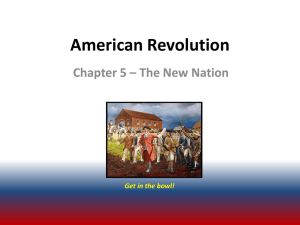study guide for american revolution
advertisement
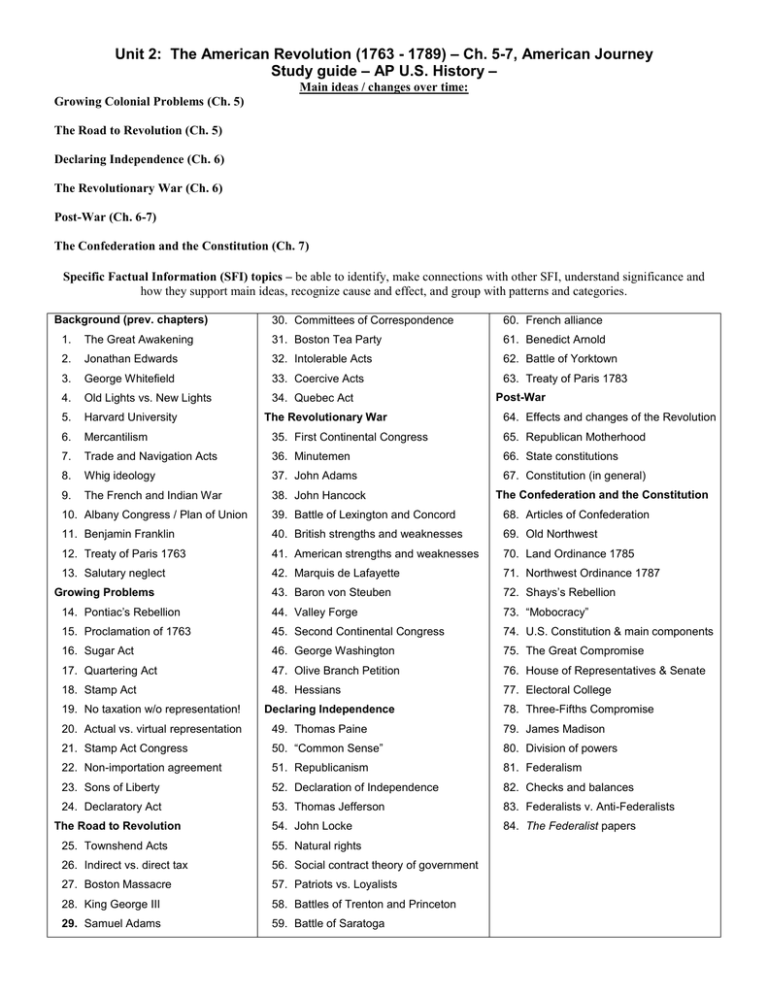
Unit 2: The American Revolution (1763 - 1789) – Ch. 5-7, American Journey Study guide – AP U.S. History – Main ideas / changes over time: Growing Colonial Problems (Ch. 5) The Road to Revolution (Ch. 5) Declaring Independence (Ch. 6) The Revolutionary War (Ch. 6) Post-War (Ch. 6-7) The Confederation and the Constitution (Ch. 7) Specific Factual Information (SFI) topics – be able to identify, make connections with other SFI, understand significance and how they support main ideas, recognize cause and effect, and group with patterns and categories. Background (prev. chapters) 30. Committees of Correspondence 60. French alliance 1. The Great Awakening 31. Boston Tea Party 61. Benedict Arnold 2. Jonathan Edwards 32. Intolerable Acts 62. Battle of Yorktown 3. George Whitefield 33. Coercive Acts 63. Treaty of Paris 1783 4. Old Lights vs. New Lights 5. Harvard University 6. Mercantilism 35. First Continental Congress 65. Republican Motherhood 7. Trade and Navigation Acts 36. Minutemen 66. State constitutions 8. Whig ideology 37. John Adams 67. Constitution (in general) 9. The French and Indian War 38. John Hancock 34. Quebec Act The Revolutionary War Post-War 64. Effects and changes of the Revolution The Confederation and the Constitution 10. Albany Congress / Plan of Union 39. Battle of Lexington and Concord 68. Articles of Confederation 11. Benjamin Franklin 40. British strengths and weaknesses 69. Old Northwest 12. Treaty of Paris 1763 41. American strengths and weaknesses 70. Land Ordinance 1785 13. Salutary neglect 42. Marquis de Lafayette 71. Northwest Ordinance 1787 43. Baron von Steuben 72. Shays’s Rebellion 14. Pontiac’s Rebellion 44. Valley Forge 73. “Mobocracy” 15. Proclamation of 1763 45. Second Continental Congress 74. U.S. Constitution & main components 16. Sugar Act 46. George Washington 75. The Great Compromise 17. Quartering Act 47. Olive Branch Petition 76. House of Representatives & Senate 18. Stamp Act 48. Hessians 77. Electoral College Growing Problems 19. No taxation w/o representation! Declaring Independence 78. Three-Fifths Compromise 20. Actual vs. virtual representation 49. Thomas Paine 79. James Madison 21. Stamp Act Congress 50. “Common Sense” 80. Division of powers 22. Non-importation agreement 51. Republicanism 81. Federalism 23. Sons of Liberty 52. Declaration of Independence 82. Checks and balances 24. Declaratory Act 53. Thomas Jefferson 83. Federalists v. Anti-Federalists 54. John Locke 84. The Federalist papers The Road to Revolution 25. Townshend Acts 55. Natural rights 26. Indirect vs. direct tax 56. Social contract theory of government 27. Boston Massacre 57. Patriots vs. Loyalists 28. King George III 58. Battles of Trenton and Princeton 29. Samuel Adams 59. Battle of Saratoga Dates: 1754-1763 – French and Indian War 1763 – Treaty of Paris 1763 1775 – Lexington and Concord 1776 – Declaration of Independence 1783 – Treaty of Paris 1783 1789 – US Constitution ratified Essay question possibilities: 1. Should the American colonists have rebelled against Great Britain? In your answer, evaluate which of the following were the most justifiable and important reasons for your decision: a. Political, cultural and religious differences b. Taxation c. Civil liberties d. British military actions You will be allowed to use your book and notes for the essay. However, you are limited on in-class time so it is highly recommended that you prepare, study, and perhaps practice your essay responses in advance of the exam.

